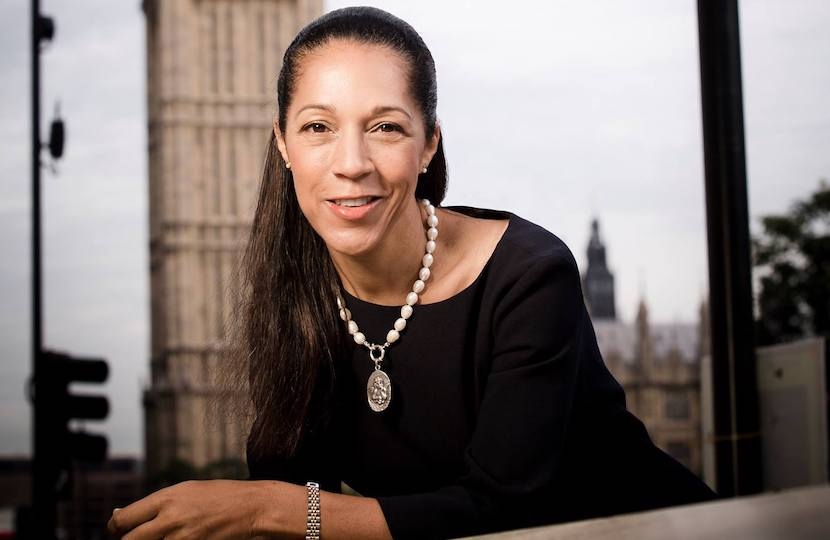Ensuring quality education for Malawian girls
The United Kingdom (UK) is committed to ensuring that every girl in the world receives 12 years of quality education, as a way of helping to reduce poverty; boost economic growth; tackle climate change; and strengthen health security. Malawi is a priority country for the UK, on girls’ education. In this country, if every girl went to secondary school, infant mortality could be cut in half — saving three million lives annually. In this interview, our reporter BRENDA TWEA-BULIYANI caught up with the new UK’s Special Envoy for Girls’ Education, HELEN GRANT to explain more about UK’s commitment.
What will be the significance of ensuring that girls access 12 years of quality education, especially for countries such as Malawi?

Ensuring every girl around the world has 12 years of quality education is an extremely important issue and the key to solve many of the world’s challenges. I’m honoured to take on the role of the United Kingdom’s Special Envoy for Girls’ Education to champion this cause.
Giving girls the chance to learn is one of the most transformative things we can do to grow economies, tackle poverty, champion gender equality and fight climate change.
Ensuring girls have access to education is vital in Malawi, where fewer girls complete primary school and go on to secondary school than boys. Girls are also more likely to drop out of school and underperform in examinations and assessments compared with boys. We know girls have been disproportionately affected by the Covid-19 induced school closures too, with increased risks of child marriages and teenage pregnancies.
What is the UK’s impact on girls’ education in Malawi so far?
The UK has been a long-standing supporter of Malawi’s education sector. Since 2011, over £70 million [about K70 billion] of UK aid has enabled millions of children to stay in school and improve their learning. Our work currently includes:
- Supporting over 29 000 marginalised girls with learning materials and financial support to stay in primary school and transition to secondary school.
- Running after-school clubs for 70 000 girls [and 40 000 boys] across 675 schools to help with learning, life skills, confidence building and Covid-19 recovery.
- Assisting the Ministry of Education to improve the quality of teaching and learning of early grade mathematics nationwide for girls and boys. This will benefit 3.2 million primary school pupils, 1.6 million of whom are girls.
What more are you doing to ensure that the girls remain in school, considering that not all girls are forced into marriage, as some choose to drop out of school?
One of the key successes of the UK’s work in Malawi is our partnership with Campaign for Female Education [Camfed]. Since 2011 we have worked with Camfed to provide bursaries for over 35 000 girls to attend secondary school.
As part of our current education programme for Malawi, we are working with 900 young female graduates, who are members of Camfed’s Alumni Association [Cama]. With the UK’s support, these young women return to rural schools delivering after-school clubs, which help over 70 000 marginalised girls, as well as over 40 000 boys with their education, life-skills and confidence. These young women also play the vital role of liaising with schools and communities to make sure there is a strong support system to keep vulnerable girls in schools and protect them from early marriage and teenage pregnancy.
This work will help the next generation of girls access quality education and fulfil their potential, contributing towards Malawi’s development.
What more do you think can be done to get more girls educated and into science, technology engineering and mathematics (STEM)?
This requires a collaborative approach from leaders, education departments, teachers, and communities. Today’s girls are tomorrow’s leading scientists, campaigners, and leaders. I believe teachers are a crucial part of an education system. It is vital that they are supported well so they can help girls and boys succeed, by ensuring that they are paid on time; deployed to the schools where they are most needed; and motivated with professional development opportunities and career progression. It is also vital that we ensure girls master the basics of literacy and mathematics. Without solid foundations, it is hard to engage with further education, including complex science and engineering subjects. Furthermore, girls need strong role models in their communities, to inspire them to stay in school and keep working hard.
What challenges are you facing in championing this cause?
Ensuring all girls have access to 12 years of quality education is an urgent priority—it is an ambitious challenge. The Covid-19 pandemic has made this harder, disrupting school for 1.6 billion students. At the peak of school closures, the UK and Malawi worked together to support vulnerable children to continue learning during the pandemic and to return to school once restrictions are lifted.
What is your last word?
The UK has an ambitious global target of getting 40 million more girls in school in low and middle-income countries, and a third more girls reading by the age of 10, by 2025. We are rallying others to back, promote and achieve these targets and give every girl access to 12 years of quality education. We know girls have been disproportionately affected by the Covid-19 school closures too, with increased risks of child marriages and teenage pregnancies. More needs to be done to support girls to stay in school and learn. n






One Comment